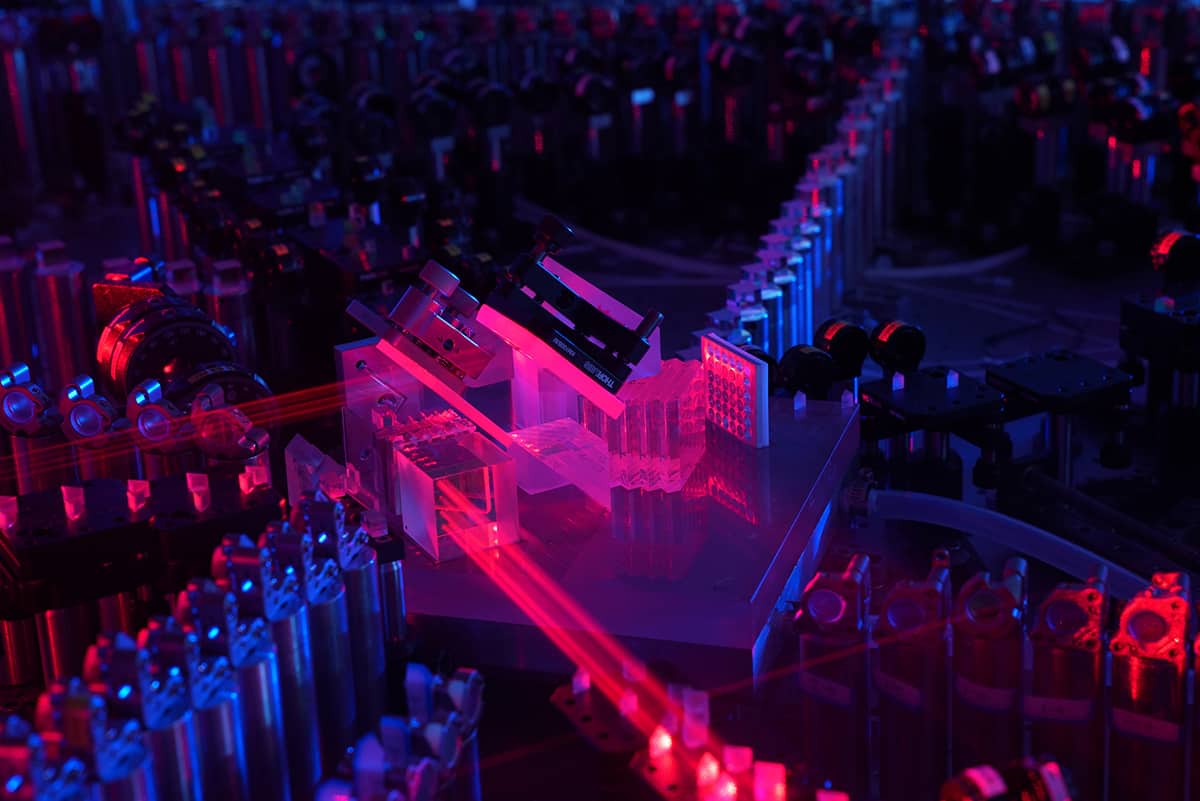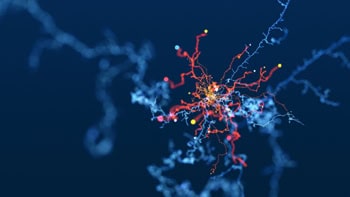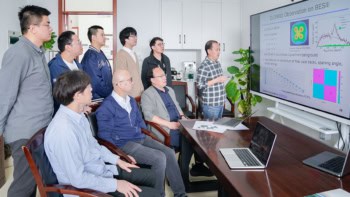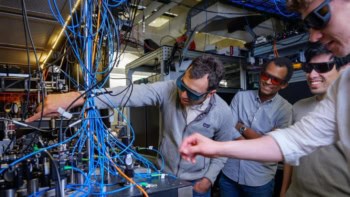Available to watch now, IOP Publishing, in partnership with Bluefors and Pacer (Solid State Supplies), explores quantum computational advantage and future applications
Want to learn more on this subject?
 Quantum computers can in principle solve certain problems faster than classical computers. Building quantum machines that can actually outperform classical computers for some specific tasks is a milestone termed as “quantum advantage”. Boson sampling has been considered as an intermediate step for linear optical quantum computing, and a strong candidate to demonstrate the quantum computational advantage. Since the proposal of boson sampling in 2013, however, there is a major experimental challenge in scaling up to a non-trivial regime of more than 50 photons. The speaker will outline the three components of the boson sampling machine, and show his path to building a 76-photon 100-mode photonic quantum computer to demonstrate quantum advantage.
Quantum computers can in principle solve certain problems faster than classical computers. Building quantum machines that can actually outperform classical computers for some specific tasks is a milestone termed as “quantum advantage”. Boson sampling has been considered as an intermediate step for linear optical quantum computing, and a strong candidate to demonstrate the quantum computational advantage. Since the proposal of boson sampling in 2013, however, there is a major experimental challenge in scaling up to a non-trivial regime of more than 50 photons. The speaker will outline the three components of the boson sampling machine, and show his path to building a 76-photon 100-mode photonic quantum computer to demonstrate quantum advantage.
 Chao-Yang Lu was born in 1982 in Zhejiang, China. He obtained a Bachelor’s degree from the University of Science and Technology of China (USTC) in 2004, and a PhD in physics from the Cavendish Laboratory, University of Cambridge in 2011. Since 2011, he is a professor of physics at USTC. His current research interest includes quantum computation, solid-state quantum photonics, multiparticle entanglement, quantum teleportation, superconducting circuits, and atomic arrays. His work on quantum teleportation was selected by Physics World as “Breakthrough of the Year 2015”. He was the chair of Quantum 2020 and has served as an editorial board member in international journals such as Quantum Science and Technology, PhotoniX, Advanced Photonics, Advanced Quantum Technology, Science Bulletin and iScience.
Chao-Yang Lu was born in 1982 in Zhejiang, China. He obtained a Bachelor’s degree from the University of Science and Technology of China (USTC) in 2004, and a PhD in physics from the Cavendish Laboratory, University of Cambridge in 2011. Since 2011, he is a professor of physics at USTC. His current research interest includes quantum computation, solid-state quantum photonics, multiparticle entanglement, quantum teleportation, superconducting circuits, and atomic arrays. His work on quantum teleportation was selected by Physics World as “Breakthrough of the Year 2015”. He was the chair of Quantum 2020 and has served as an editorial board member in international journals such as Quantum Science and Technology, PhotoniX, Advanced Photonics, Advanced Quantum Technology, Science Bulletin and iScience.
Speaker relationship with IOP Publishing
Editorial board member, Quantum Science and Technology and chair for IOP Publishing’s Quantum 2020 virtual conference that took place in October 2020.
Why not sign up for our other Quantum Week webinars? Even if you’re not able to join the live event, registering now enables you to access the recording as soon as it’s available.
- Tales of a not-quite-probability distribution
Tuesday 15 June, 2 p.m. BST - Building quantum processors and networks atom by atom
Tuesday 15 June, 4 p.m. BST - Nitride quantum light sources
Wednesday 16 June, 2 p.m. BST - A roadmap for the quantum internet
Thursday 17 June, 2 p.m. BST - A quantum future of computing
Friday 18 June, 4 p.m. BST






